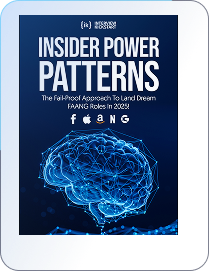To land your dream job as a data engineer, you need to master the Structured Query Language (SQL) interview questions. SQL is incredibly useful when you’re dealing with large amounts of data, want to retrieve specific results, or draw insights quickly. No wonder that it is extremely popular among data scientists/engineers and anyone involved in data work.
Being skilled at SQL and excellent at answering SQL query interview questions is especially crucial if your dream job is to be a data engineer. This article will help you assess your SQL interview prep and clear some of the concepts.
If you are preparing for a tech interview, check out our technical interview checklist, interview questions page, and salary negotiation e-book to get interview-ready!
Having trained over 9,000 software engineers, we know what it takes to crack the toughest tech interviews. Since 2014, Interview Kickstart alums have been landing lucrative offers from FAANG and Tier-1 tech companies, with an average salary hike of 49%. The highest ever offer received by an IK alum is a whopping $933,000!
At IK, you get the unique opportunity to learn from expert instructors who are hiring managers and tech leads at Google, Facebook, Apple, and other top Silicon Valley tech companies.
Want to nail your next tech interview? Sign up for our FREE Webinar.
In this article, we’ll learn:
SQL is the most common language used to extract and organize data stored in a relational database. SQL allows you to:
Let’s jump right in and look at some sample SQL/SQL query-related interview questions and answers to see its use in action.
SELECT * FROM table_name SAMPLE(5);
SELECT old_column_name AS new_column_came FROM table_name;
Here’s a sample table: Employee

We’ll now look at some sample SQL query questions and answers:
Select substring(last_name,1,2) from Employee;
Select REPLACE(department,’e’,’Z’) from Employee;
Select CONCAT(first_name, ‘ ‘, last_name) AS ‘full_name’ from Employee;
There can be numerous questions that can be made by changing constraints and requirements. Some common constraints and requirements include:
Here are some more SQL query interview questions to help you evaluate your preparation:
1. In the context of SQL, define:
2. What values can BOOLEAN data field take?
3. Can a table have more than one foreign key? What about a primary key? Why?
1. Name and explain all the different types of:
2. Explain and differentiate between:
3. How can we update a view in SQL?
4. How do SQL Privileges work?
5. Describe some properties of relational databases.
To understand the type of SQL interview questions asked at top tech companies, read:
Whether you’re working with PL/SQL, MySQL, or OracleSQL, you should thoroughly prepare and practice interview questions related to these SQL query topics for your next interview:
You should also take a sample table and solve all possible SQL query interview questions you can make out of it.
For more questions, read this article on SQL interview questions and tips on cracking them.
1. What are the different types of statements supported by SQL?
There are three types of statements supported by SQL — Data Definition Language (DDL), Data Manipulation Language (DML), and Data Control Language (DCL).
2. What is the difference between DDL, DML, and DCL in SQL?
Data Definition Language statements are used to define the database structures like tables. Example of DDL statements: CREATE, ALTER, and DROP. Data Manipulation Language statements are used to manipulate the data stored in the records. Example of DML statements: INSERT, UPDATE, and DELETE. (SELECT is a partial DML statement). Data Control Language statements are used to set privileges that give, revoke, or limit access to databases for specific users. Example of DCL statements: GRANT, REVOKE.
3. How do we use the DISTINCT statement in SQL? What is its use?
The DISTINCT statement is used along with the SELECT statement. If there are duplicate values in the record, the DISTINCT statement is used to select only all unique values from the record to avoid duplicates.
4. What are the different Clauses used in SQL?
The different clauses used in SQL are: WHERE, GROUP BY, HAVING, ORDER BY, and USING.
5. Why do we use SQL constraints? Which constraints can we use while creating a database in SQL?
Constraints set the rules for all the records in the table, so any action that violates the constraints is aborted. Constraints can be declared at the time of table creation using CREATE TABLE or later using ALTER TABLE.
Whether you’re a coding engineer gunning for software developer or software engineer roles, a tech lead, or you’re targeting management positions at top companies, IK offers courses specifically designed for your needs to help you with your technical interview preparation!
If you’re looking for guidance and help with getting started, sign up for our FREE webinar. As pioneers in the field of technical interview preparation, we have trained thousands of software engineers to crack the most challenging coding interviews and land jobs at their dream companies, such as Google, Facebook, Apple, Netflix, Amazon, and more!
Attend our free webinar to amp up your career and get the salary you deserve.

693+ FAANG insiders created a system so you don’t have to guess anymore!

100% Free — No credit card needed.

Time Zone:






Get your enrollment process started by registering for a Pre-enrollment Webinar with one of our Founders.

The 11 Neural “Power Patterns” For Solving Any FAANG Interview Problem 12.5X Faster Than 99.8% OF Applicants
The 2 “Magic Questions” That Reveal Whether You’re Good Enough To Receive A Lucrative Big Tech Offer
The “Instant Income Multiplier” That 2-3X’s Your Current Tech Salary

The 11 Neural “Power Patterns” For Solving Any FAANG Interview Problem 12.5X Faster Than 99.8% OF Applicants
The 2 “Magic Questions” That Reveal Whether You’re Good Enough To Receive A Lucrative Big Tech Offer
The “Instant Income Multiplier” That 2-3X’s Your Current Tech Salary
Just drop your name and email so we can send your Power Patterns PDF straight to your inbox. No Spam!
By sharing your contact details, you agree to our privacy policy.
Time Zone: Asia/Dhaka

We’ve sent the Power Patterns PDF to your inbox — it should arrive in the next 30 seconds.
📩 Can’t find it? Check your promotions or spam folder — and mark us as safe so you don’t miss future insights.
We’re hosting a private session where FAANG insiders walk through how they actually use these Power Patterns to crack interviews — and what sets top performers apart.
🎯 If you liked the PDF, you’ll love what we’re sharing next.
Time Zone:

